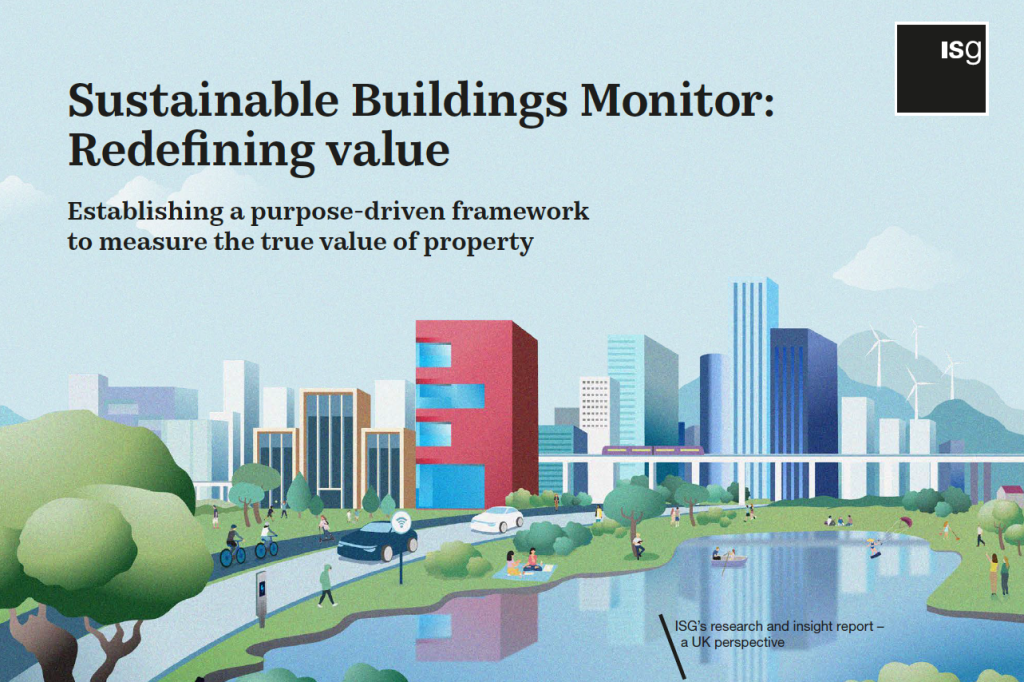ISG commissioned economics consultant Centre for Economics & Business Research (CEBR) to produce a comparative index of “holistic potential property value” across the UK.
The methodology uses traditional financial and commercial metrics, alongside environmental and social metrics, including energy supply, emissions, quality of life and transport infrastructure.
The hope is that public sector clients will be persuade that demonstrably ‘ethical construction’ gives a better financial return.
“To be accurate and build resilience, our asset valuation system must be as flexible and multifaceted as the market,” the report says.
One of the findings of the resulting report is that while buildings in the south of England outperformed the north of England in the environmental and social metrics, and people and workforce metrics, but it fell behind in the financial and commercial metrics due to higher input costs.
Zoe Price, Global Chief Operating Officer of ISG, said: “The world has changed and so must our built environment, from homes to significant infrastructure. Inaction, or the sole pursuit of short-term gains, is no longer a viable commercial strategy, with ESG [environmental, social and governance] value now a necessity.
“Luckily, the opportunities to commit to goals that value society and environment are present throughout our industry. They just need to be seized. That’s why we produced this research, and we hope that it adds to burgeoning discussion of how to identify areas of the UK with the best opportunities to build differently and better, to add resilience to our communities and unlock skills and growth opportunities.”
https://www.isgltd.com/en/campaigns/sustainable-buildings-monitor-2022
Got a story? Email [email protected]

